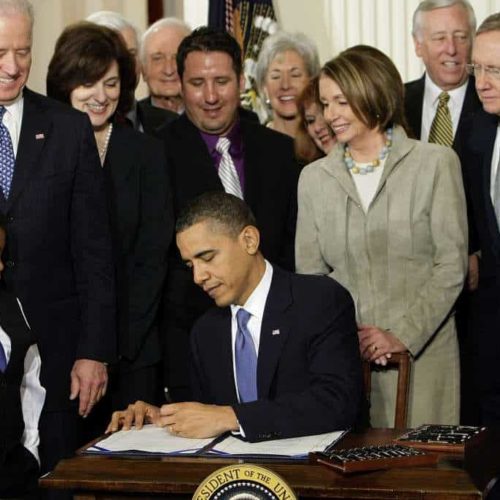Introduction
One of the most ill-advised promises President Obama made during the health care reform debate was this: “If you like your health care plan, you can keep your health care plan.”
He should have known better. First, insurance companies and employers are far more in control of determining whether or not you can keep your health plan than the government. That was true before ObamaCare was passed, and it’s true today.
Second, ObamaCare will indeed mean that some health plans will no longer be available a year from now. That’s a good thing, despite what you’ll be hearing from companies that make huge profits selling inadequate coverage.
A few insurers have for years used slick brochures and sales pitches to persuade people to buy policies that will not come close to shielding them from financial ruin if they get sick or injured. Many people who have bought these policies undoubtedly believe they have a health plan worth keeping, especially since premiums for inadequate coverage are usually lower than premiums for real insurance. You can be certain that many of those folks will complain loudly when junk health insurance is banned in 2014 and, in so doing, become unwitting soldiers in the insurance industry’s ongoing battle to gut the consumer protections in ObamaCare.
Back to that first point for a moment. I remember shaking my head when I first heard the President assure me back in 2009 that I could keep my plan if I liked it. To deliver on that promise, the law would have to require employers and insurers to keep offering plans they want to get rid of, and that was never going to happen. A few years before I left my job in the insurance industry I was forced out of a plan I liked—a PPO—because my employer decided to stop offering PPOs to its workers and to move all of us into a high-deductible plan.
Now back to junk insurance. Starting in 2014, health insurance plans must offer a minimal level of coverage, and they cannot have sky-high deductibles and caps on covered benefits. Big insurance companies like Aetna and Cigna are not at all happy about that because they make millions selling policies with very limited benefits that cover nothing after a paltry annual cap is reached.
To make us all want to petition Congress to change ObamaCare to allow them to keep selling these policies, insurance company executives have come up with a term to scare the bejesus out of us if they don’t get their way: premium shock.
At a meeting with Wall Street financial analysts a few days ago, Aetna CEO Mark Bertolini used that term in his warning that in some cases, premium hikes could soon be “as high as 100 percent.”
“Premium rate shock for 2014, absent subsidies and everything else, is going to be in the neighborhood of 20 to 50 percent,” Bertolini said. “And we’re going to see some markets…go as high as 100 percent.”
Note Bertolini excluded subsidies from his math. If he hadn’t his arithmetic wouldn’t have had the same impact. Most people who have bought limited benefit plans are low-income individuals and families who currently can’t afford anything else. Under ObamaCare, starting in 2014 people up to 400 percent of the federal poverty level will be eligible for subsidies from the government to help them buy decent coverage.
Some background: In 2005, Aetna paid $250 million for Strategic Resources Co., a company that specializes in limited benefit plans. I found one such Aetna plan online that pays no more than $10,000 a year for inpatient hospital care and doesn’t cover pre-existing conditions during the first year of the policy. Under ObamaCare, not only will annual caps be unlawful, but insurers will also no longer be able to refuse to cover preexisting conditions.
Not to be outdone, Cigna in 2006 paid $175 million to buy Star HRG to compete with Aetna in the limited-benefits marketplace. Aetna and Cigna and the other companies that sell limited benefit plans want to protect those investments. That’s why they want us to worry about premium shock.
They’re also using that term—and its cousin, rate shock—to get us to go to bat for them to get Congress to allow them to continue charging their older customers five times or more than what they charge their younger policyholders. In 2014 they won’t be able to charge older folks more than three times as much as younger people.
As part of their “premium shock” campaign, insurance executives and their allies will remind us of Obama’s 2009 promise, and they’ll blame any rate increases a year from now on ObamaCare. Some increases are inevitable, but in return we’ll be spared from paying good money for coverage that is anything but good.
Read more in Health
Wendell Potter commentary
OPINION: finally, plain English from health insurance companies
ObamaCare rule says policies must be written in language we can understand


Join the conversation
Show Comments